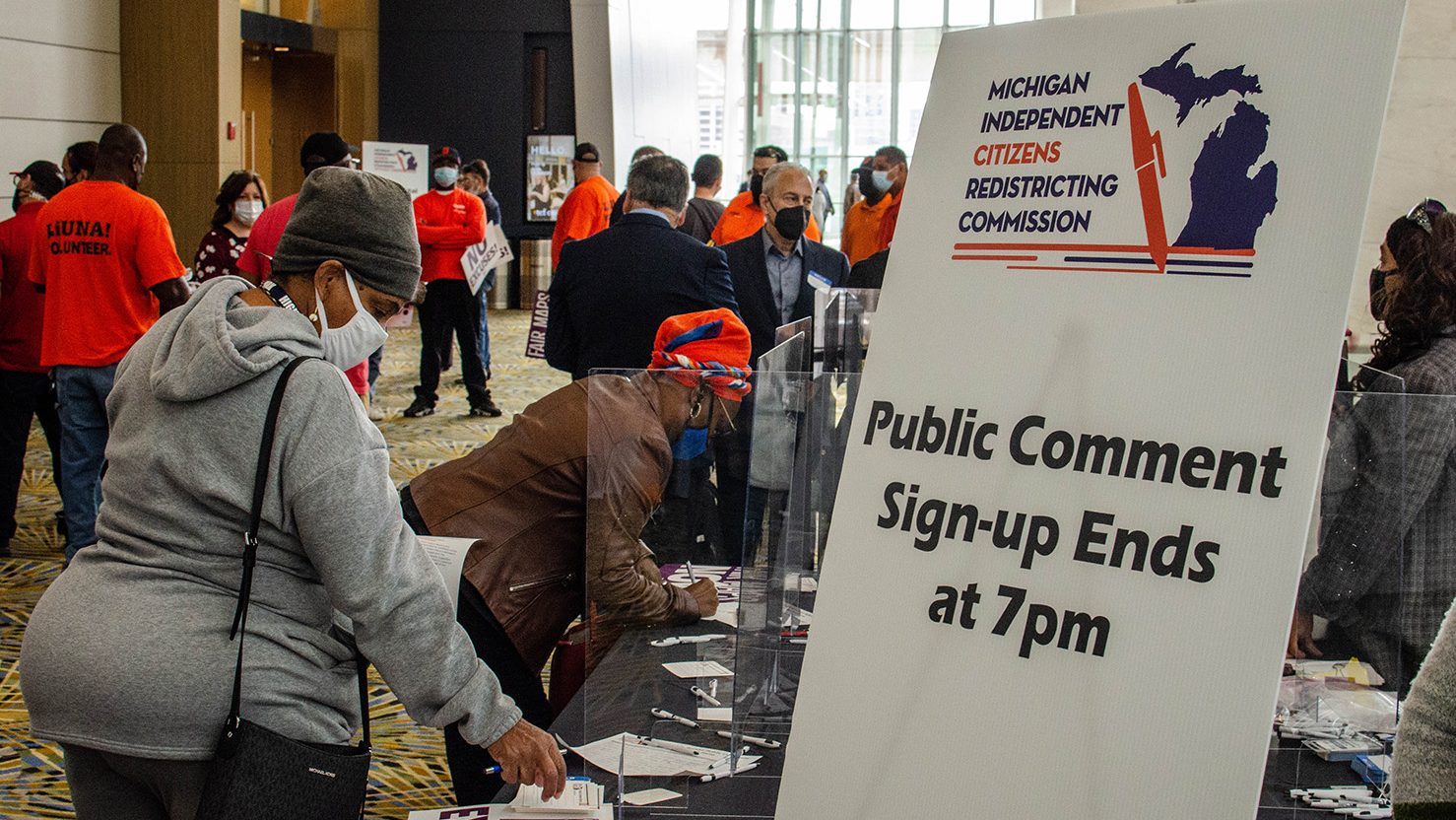A Defense of — and Rebuttal to — Michigan’s New Political Maps
Two redistricting commissioners and a former state representative discuss Michigan’s new political maps.

Detroit-area residents sign up for a public comment period at a Michigan Independent Citizens Redistricting Commission meeting at Huntington Place on Oct. 20, 2021.
This year, electoral politics will be critical in Michigan and across the country. Notably, however, this election will be distinct from those of the past. That’s largely because the state has new political maps that were drawn not by politicians in Lansing, but by an independent redistricting commission made up of citizens.
“It really was an exercise in this huge experiment in democracy and what can be achieved if you take a step back sometimes and let everyday folks participate in this democratic process.” — Anthony Eid, Michigan Independent Citizens Redistricting Commission
Still, not everyone was pleased with the new maps, including many Black and rural residents.
Listen: The highlights and drawbacks of Michigan’s new political maps.
Guest
Rebecca Szetela is the chair of the Michigan Independent Citizens Redistricting Commission and an independent from Canton. She says the map-drawing process was good, but had challenges because the commission was pressed for time. “But, despite that, as a group, we put in Herculean hours some weeks to get stuff done,” says Szetela. Szetela says much criticism the commission received comes with regards to how the new maps altered primary elections, not just general ones. “I do lose sleep over the [state] Senate map,” she says.
Anthony Eid is an independent from Detroit on the Michigan Independent Citizens Redistricting Commission. Eid says the commission collaborated together, and that he is pleased with the maps that were created. “It really was an exercise in this huge experiment in democracy and what can be achieved if you take a step back sometimes and let everyday folks participate in this democratic process,” says Eid.
Brian Calley is the president and CEO of the Small Business Associate of Michigan, former lieutenant governor under Rick Snyder and a former Republican state lawmaker. Calley says the commission ignored the needs of rural areas, noting that many of those counties are not intact as a voting bloc. “I would say that the main concern that I have is the degree to which the process disregarded the importance of holding communities together,” he says.
Trusted, accurate, up-to-date.
WDET strives to make our journalism accessible to everyone. As a public media institution, we maintain our journalistic integrity through independent support from readers like you. If you value WDET as your source of news, music and conversation, please make a gift today.
